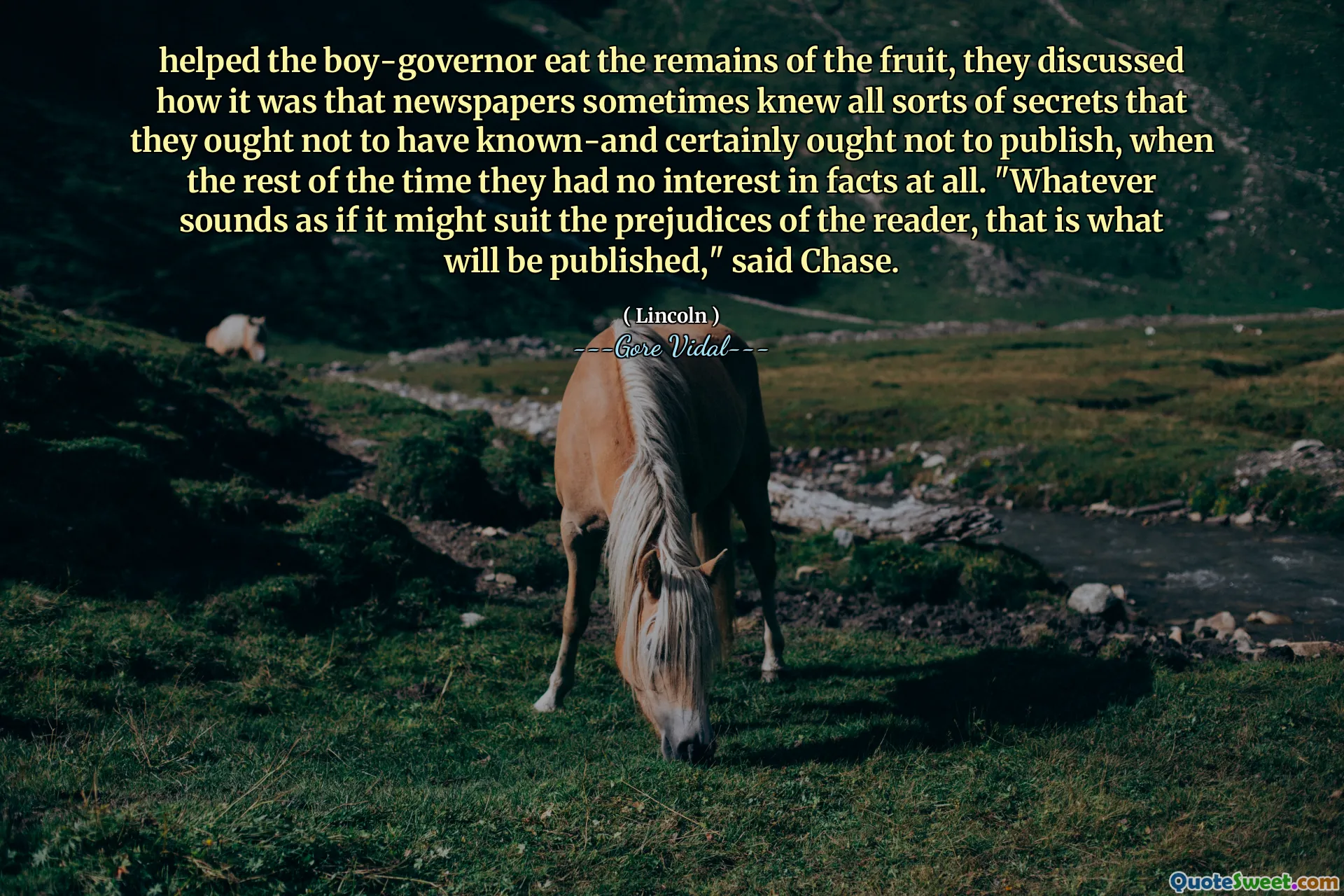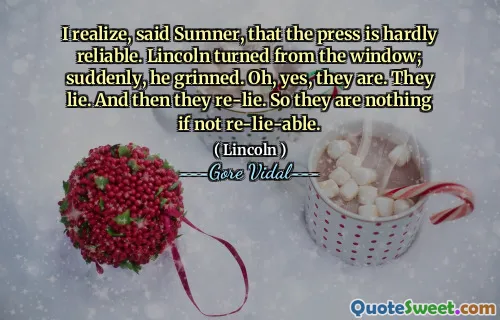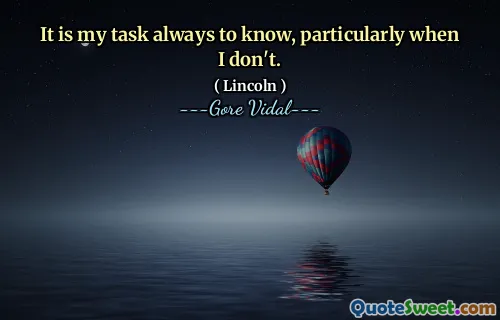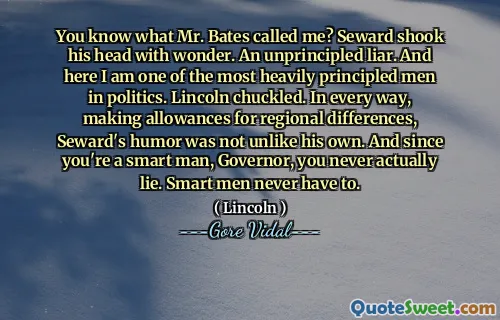
helped the boy-governor eat the remains of the fruit, they discussed how it was that newspapers sometimes knew all sorts of secrets that they ought not to have known-and certainly ought not to publish, when the rest of the time they had no interest in facts at all. "Whatever sounds as if it might suit the prejudices of the reader, that is what will be published," said Chase.
In the book "Lincoln" by Gore Vidal, a conversation unfolds between characters about the paradoxes of journalism. They contemplate how newspapers often reveal confidential information that seems inappropriate to disclose, while at other times, they neglect factual reporting. This inconsistency raises questions about the integrity of the press. Chase points out that newspapers tend to publish material that aligns with the biases and prejudices of their audience.
This dialogue underlines the complex relationship between news and truth. It reveals a criticism of how sensationalism can take precedence over accountability, suggesting that the media can cater to public opinion rather than uphold journalistic standards. Through this exchange, Vidal invites readers to reflect on the role of newspapers in society and the implications of their choices in pursuing stories that resonate with their readers.











